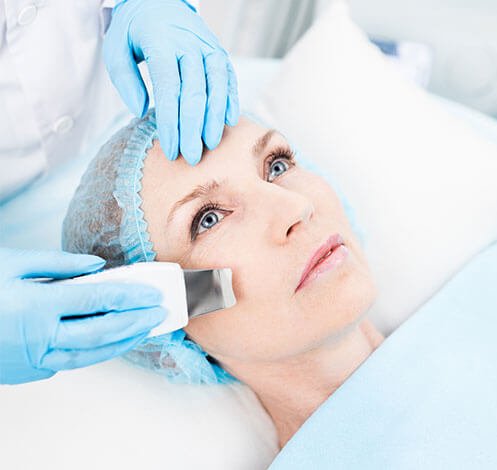Medical Treatment

INTRODUCTION
Medical Skin Treatment in Manchester
Your First Step Towards Expert Skin Care
How it works
Our leading Consultant Dermatologist, Dr Rajani Nalluri, or her secretary will respond to your enquiry with a complimentary telephone discussion or email, to answer any questions regarding the consultation process and schedule an appointment for you to see her in the clinic or virtually.
Book Your Consultation
Secure your spot with Dr. Rajani by booking online or calling the clinic. A £30 deposit confirms your appointment.
Complete Your Forms
Fill in your medical and related forms before your visit to save time and help us prepare.
Personalised Consultation
During the consultation, Dr. Rajani will review your history and create a tailored management plan.
Summary & Communication
A consultation summary will be emailed to you and, if you wish, shared with your GP.
Keep Us Updated
Share your progress with us so we can support your ongoing improvements.
Review Consultation
We'll meet again to compare results and decide whether to continue the treatment as planned.
Dr Nalluri will provide a medical diagnosis and discuss your treatment options during the consultation
Related Expert Treatments
Click the treatments to Explore more.

Our Approach
In most cases, our outpatient dermatology services can be administered on the same day as your initial consultation.
We understand that finding the right treatment and dermatologist can be daunting. Our vision is to provide cutting edge treatment for all skin types and to create a relationship of trust with our clients.
Dr Nalluri has a unique and specialist interest in pigmentation and treating all skin types. Find out more about your Consultant Dermatologist
Check This Out
Our Clients Absolutely Adore Us
Trustindex verifies that the original source of the review is Google. With Dr. Rajini’s treatment, I was able to get rid of my pigmentation. Fantastic service and results. I would definitely recommend Dr. Rajini for any skin / pigmentation related issues. Thank you Dr. Rajini.Trustindex verifies that the original source of the review is Google. Highly recommend Varna pigmentation clinic for the excellent service they have provided Dr Rajani Nalluri ( jinni ) offered exceptional service which helped my daughters allergy related pigmentation and hypersensitivity issuesTrustindex verifies that the original source of the review is Google. I had a great experience in here, dr rajni helped me a lot in treating my pigmentation , i feel a loads of difference in just one month, i never thought in my life that my pigmentation can go away , but in one month ..it was miracle for me,,, i just love the treatment , it is only with cream , that make loads of difference , morever , dr rajni is very polite and friendly , recomemded ,Trustindex verifies that the original source of the review is Google. Ragini has been excellent in treating my shin pigmentation. She was always available to clear any doubts and guided me through out the treatment. I am very please with the device and would definitely recommend. Excellent 👍Trustindex verifies that the original source of the review is Google. Dear Varna Pigmentation team I am writing to express my utmost gratitude and satisfaction for the outstanding service I received at your clinic. From the moment I entered, the warm and welcoming atmosphere, coupled with the professionalism of your staff, made my visits truly memorable. The expertise and knowledge demonstrated by the dermatologist ( Dr Rajani Nalluri ) exceeded my expectations. She took the time to thoroughly assess my concerns, providing clear explanations and personalized recommendations. Furthermore, the clinic's commitment to maintaining a clean and organized environment did not go unnoticed. In addition to the exceptional medical care, the courtesy and kindness displayed by every staff member left a lasting impression. I am grateful for the high standard of care and the genuine concern for patient satisfaction exhibited by your entire team. Thank you for providing such an exceptional level of service. I look forward to continuing my dermatological care at your clinic and will gladly recommend it to family and friends. Best regards, Dr Phani SirigiriTrustindex verifies that the original source of the review is Google. I had the best experience with Dr. Rajani. I had gone in with hyperpigmentation around my mouth and it has substantially reduced. Highly recommend 🤍Trustindex verifies that the original source of the review is Google. I had an amazing experience and would definitely recommend this service to others.Trustindex verifies that the original source of the review is Google. I had 2 facial moles removed by DR Rajani and I couldn’t be more pleased. I had the best treatment and service from the second I arrived to the second I left. I was kept informed throughly and felt reassured that I could contact the clinic and Dr Rajani if I had any problems or concerns. The aftercare treatment is amazing, I couldn’t have asked for anyone better to perform a procedure on my face. I highly recommended Dr Rajani and clinic. Thankyou so much for giving me my confidence back and taking the upmost best care with my face and skin. It’s only been a week since I’ve had my stitches out, and my skin has healed greatly, there is minimal scarring, which is still healing. I can already say in 6 weeks (the time frame for the 1st stage of healing ) I will have the bare minimal scar that nobody will be able to notice. I will continue to have more treatments with Dr Rajani and the clinic because they are simply the best, I only trust them completely. Thankyou.Trustindex verifies that the original source of the review is Google. I had a great experience with Dr Rajani Nalluri. I have DNP's on my face Dr Rajani Nalluri recommended me to do CO2 laser which is very effective most of my DPN has gone after the treatment. Dr Rajani is very lovely and polite lady she explain everything in detail before treatment. I'm very happy with the result.Trustindex verifies that the original source of the review is Google. Dr Nalluri is very knowledgeable and kind, always happy to help. I would highly recommend her.Google rating score: 5.0 of 5, based on 18 reviews
